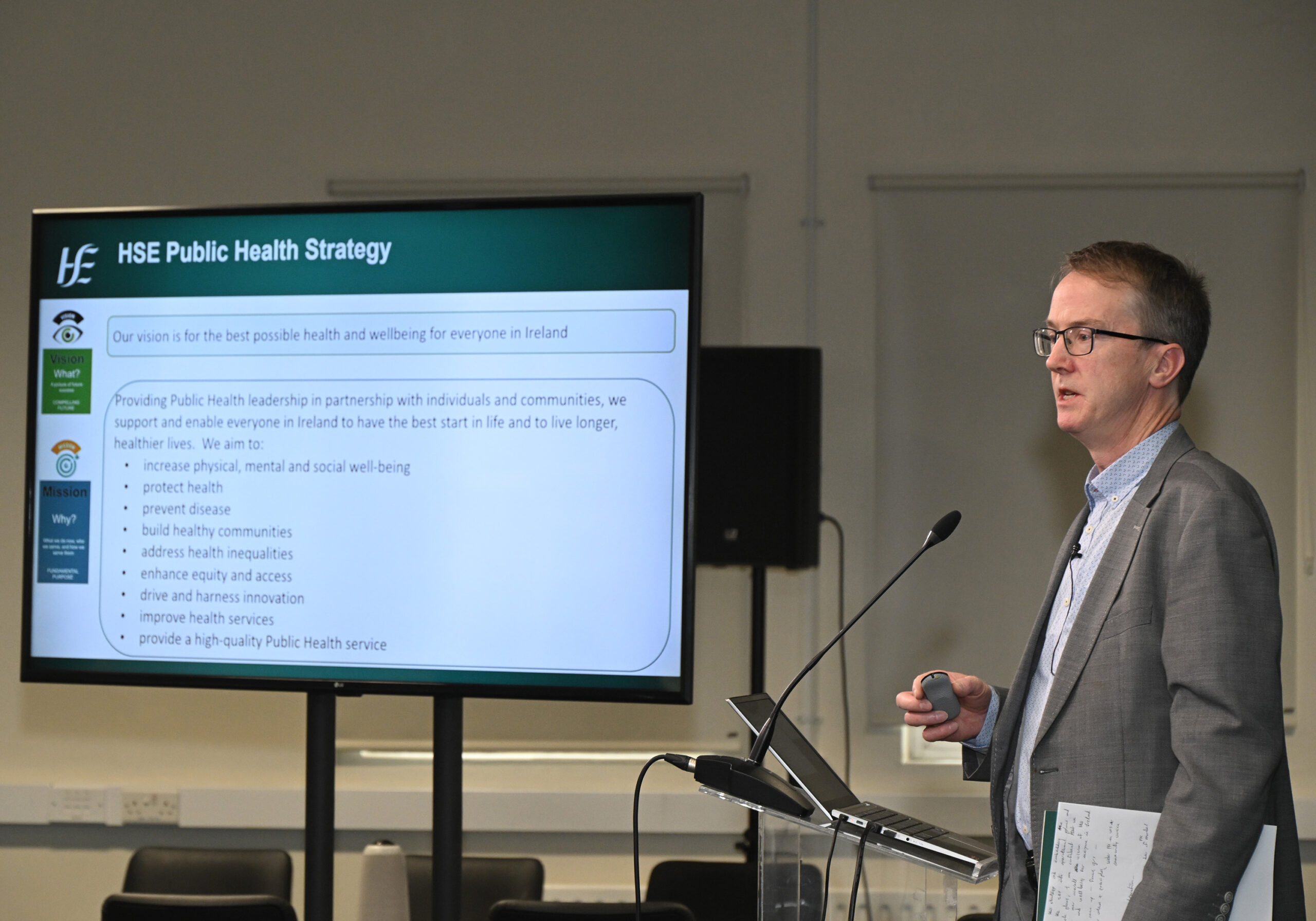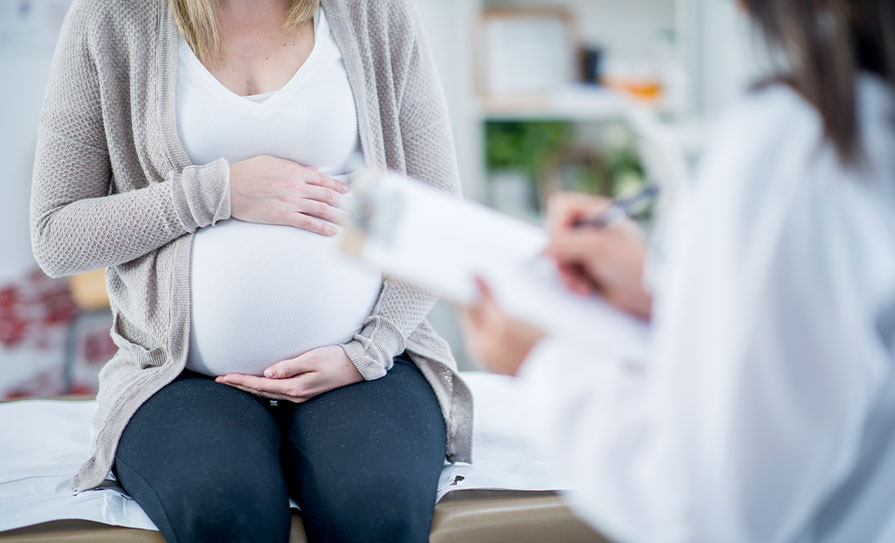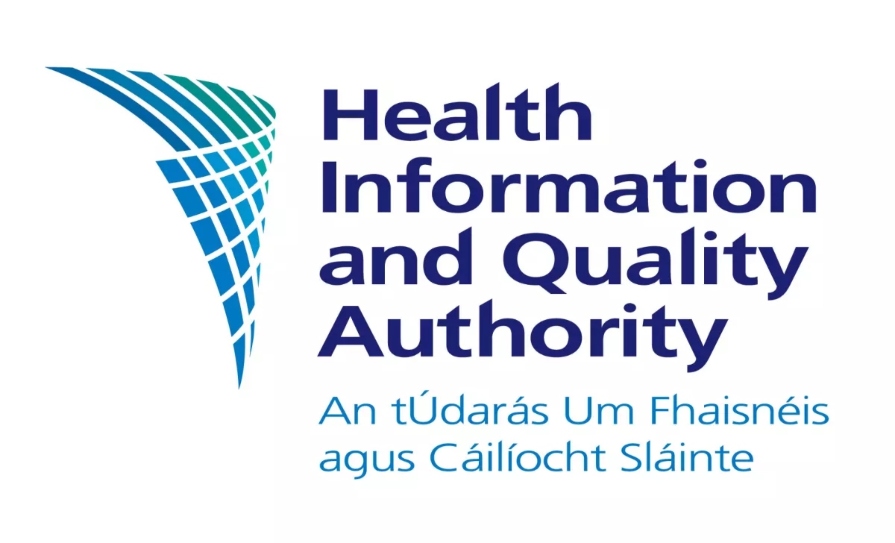Respiratory services are suffering from longer waiting lists, delayed diagnosis, treatment and care, and problems with access to diagnostics, inadequate staffing and insufficient bed capacity, according to a new survey.
The survey of respiratory consultants, which was conducted by the Irish Thoracic Society, has revealed the unprecedented impact of Covid-19 on respiratory healthcare services.
A reduction in the number of patients being seen and in the number of diagnostic procedures carried out are major issues according to the survey results.
The survey was released as the Society’s annual conference of respiratory healthcare professionals across the island of Ireland gets underway today and tomorrow (3 and 4 December). The Society has called for dedicated respiratory units to be developed in hospitals, in tandem with expanded respiratory services to respond to the unprecedented demands on the health system.
The survey was conducted in November among consultant respiratory physicians working on the frontline against Covid-19 in hospitals in the Republic of Ireland and Northern Ireland across both adult and paediatric respiratory services. A total of 60 consultants responded to the survey, which corresponds to more than half the total number of respiratory consultants on the island of Ireland.
Among the key takeaways from the survey are:
- Impacted care – the overwhelming majority of respondents (95 per cent) stated that the respiratory care of patients (excluding those with Covid-19) has been negatively impacted by the pandemic with 90 per cent citing delayed ongoing care, 73 per cent delayed diagnosis, and 59 per cent delayed acute treatment
- Fewer patients seen – four out of five respondents (79 per cent) have seen fewer non-Covid patients with lung problems when comparing March to October 2020 with the same period last year; one in four (27 per cent) state they have seen more than 50 per cent fewer patients
- Fewer procedures – more than nine out of ten respondents (95 per cent) have undertaken fewer procedures such as lung function tests, bronchoscopies and sleep studies in the months from March to October compared with the same period in 2019, with one in two (50 per cent) noting over 50 per cent fewer procedures. Many diagnostic services continue to operate at significantly reduced capacity to that which pertained pre-Covid.
- Longer waiting lists – almost nine out of ten respondents (88 per cent) stated their waiting list for routine care had increased due to Covid-19 with three in ten (27 per cent) stating by over 50 per cent; the situation was only marginally better for new referrals with eight in ten (83 per cent) stating that their waiting list had increased with one in five (21 per cent) indicating by over 50 per cent.
- Worried for the future – 72 per cent of respondents were not confident in the resources and capacity of their services to respond appropriately to the needs of patients – 84% cited issues around access to diagnostics, 78 per cent staffing, and 72 per cent bed capacity
- What is needed – in terms of additional supports required to ensure patient care is delivered to an appropriate standard – 83% want to see increased access to bronchoscopy, radiology investigations and pulmonary function tests, 73 per cent an increased number of consultants, and 65 per cent increased access to clinic space/sessions
System Buckling
For Dr Aidan O’Brien, President of the Irish Thoracic Society, Covid-19 has presented a ‘perfect storm’ of issues that are having a severe impact on patient outcomes:
“Prior to Covid-19, respiratory services were already overburdened and under significant strain. Now add to this the hugely increased workload of managing patients with Covid-19 in the acute phase, plus the need for ongoing care of those patients dealing with the long-term effects of the virus. Together, these issues are combining to have a severe impact on patient care.
“The results of our survey illustrate a large and growing backlog in patients who have missed out on essential diagnosis, interventions and routine care due to the impact of Covid-19.
“This is already having a serious knock-on effect to the health and quality of life of these patients. Of particular concern are people with lung cancer who may have experienced delayed diagnosis and, as a consequence, delayed initiation of vital therapy.
“We welcome the additional resources put in place by the Health Service Executive as part of its Winter Plan. The introduction of respiratory integrated care teams and community hubs will help to ease the burden on respiratory healthcare services at community level, however, this must be implemented in full without delay.
“We are concerned though that this is not enough. Unless we take urgent action, respiratory hospital services will continue to buckle under the pressure of trying to catch up with the backlog of patients with non-Covid lung problems and the increasing volume of new patients presenting with post-Covid syndrome.
“This workload arises against a backdrop of staff shortages resulting from Covid-19 illness or quarantine requirements and reduced access to diagnostic procedures due to longer turnaround times. While there have been very positive developments on the vaccine front, it will still take considerable time for this to be rolled out and for sufficient uptake to be achieved that would allow the health system to return to some form of normality.
“For these reasons, the Irish Thoracic Society is calling for dedicated respiratory units to be developed in hospitals, in tandem with expanded respiratory services.
“We need to see investment in upgrading and adapting existing diagnostic facilities with additional equipment and increased space to take account of infection control protocols while also beginning to try to meet demand in a timely manner. In this way we can ensure improved access to diagnostics and specialised care for patients with a broad spectrum of lung conditions, including those with newly acquired post-Covid syndrome.”
Professor Stefano Nava from the University of Bologna, who is making the keynote address during the conference’s COVID-19 session, will share some learnings from the Italian hospital system.
“On February 20, Covid-19 severely hit the Northern part of Italy. It was reported that, in Lombardy, the most populated region of the country, more than 1,500 patients required intensive care unit (ICU) admission over only four weeks, largely exceeding the actual capacity. In the same period, the number of hospital admissions was 8,000. Approximately 35 per cent of these patients experienced Acute Respiratory Failure (ARF) requiring any form of respiratory support.
“Under these circumstances, despite extraordinary efforts aimed at increasing the availability of ICU resources, the Italian Societies of Respiratory Medicine proposed a protocol to provide ventilatory support outside the ICU in dedicated Respiratory Covid Units, reinforced by a higher number of nurses and non-invasive monitoring. This recommendation was somehow in contrast to most of the available guidelines that contraindicated using non-invasive respiratory support (NRS) in these patients due to the major concerns over using bio-aerosol producing techniques, because of possible contamination of the hospital staff.
“Data from 670 consecutive patients referred to the Pulmonology Units in nine hospitals showed that the use of NRS (i.e. high-flow nasal cannula (HFNC), continuous positive airway pressure (CPAP), non-invasive ventilation (NIV)), was feasible and effective in treating these patients with an intubation rate of 27 per cent and a similar mortality rate. Mortality rate increased with age and comorbidity class progression. Forty-two health-care workers (11.4 per cent) tested positive for infection, but only three of them required hospitalisation, and this percentage is in keeping with studies performed in other Covid-19 hospitals.”
The Irish Thoracic Society annual scientific meeting will see more than 180 research projects from the Irish healthcare system presented at its two-day meeting. This includes over 40 Covid-related research projects offering evidence-based insights on every aspect of Covid care, from diagnosis and treatment, through to aftercare and ongoing support.
For more information on the work of the Irish Thoracic Society, visit www.irishthoracicsociety.com or follow on Twitter @irishthoracicS













Leave a Reply
You must be logged in to post a comment.